
Europe is making progress in designing its own new security architecture
The Munich Conference highlights Europe’s willingness to deepen coordination in both nuclear and conventional defense

The Munich Conference highlights Europe’s willingness to deepen coordination in both nuclear and conventional defense
Distrust toward Washington — and its perception as a threat — is rising worldwide, according to a survey released by the Bavarian city’s Security Conference

The scientist, a pioneer in neural networks, warns that ‘the capabilities of artificial intelligence continue to advance at a rate which seems faster than risk management practices’

The British-American historian believes that Trumpism displays ‘fascistic elements’ and encourages Europe to threaten retaliation against Washington’s coercive practices
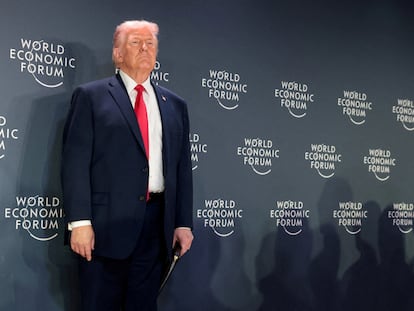
Statements made at the World Economic Forum in Davos reveal a change in Europe’s stance, with countries increasingly adopting policies of defiance similar to those of China, India, and Brazil
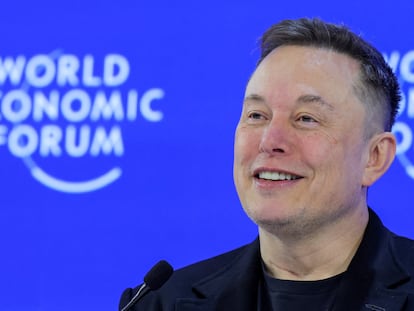
Figures like Elon Musk and the CEOs of Microsoft and Nvidia paraded at the World Economic Forum, confirming the unsettling reach of the tech titans

The former Google leader warns about the risks to Europeans of their technological dependence
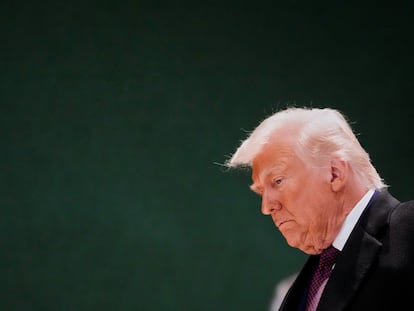
The World Economic Forum shows how Trump’s policies are alienating traditional allies, giving more space to China and garnering marginal support
Jared Kushner announced a project to rebuild the Strip with tourist skyscrapers by the sea, even as Israeli strikes continue and Palestinian children die from hypothermia
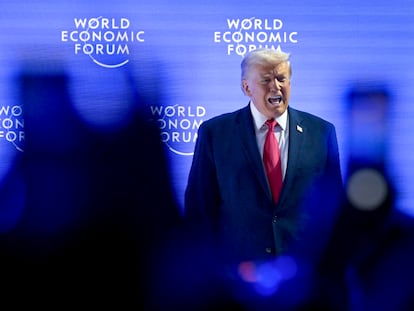
The US president says in Davos that he will not resort to the military amid market turmoil and opposition from other countries, but warns of reprisals if the territory is not handed over through negotiations
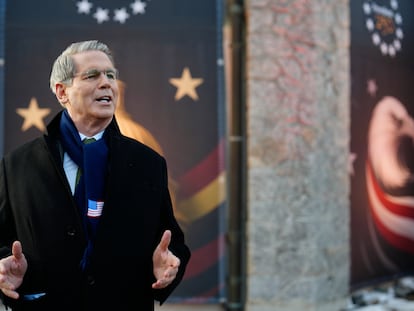
The World Economic Forum celebrates its traditional annual meeting, marked by the transatlantic crisis and the assault on free trade and international institutions
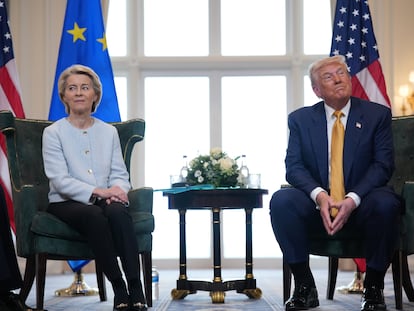
Signs of US hostility, such as threats to Greenland, sanctions against prominent figures, and the new national security strategy, are causing disquiet in a continent still dependent on Washington

The White House explicitly considers the EU an adversary and warns that it will cultivate resistance against it by supporting national-populist movements

Young people seek to make their way in a post-apartheid society that is marked by extremely high levels of unemployment, social inequality and violence

The US president is right that European civilization is in danger, but he’s wrong about who poses the threat: it’s Putin and himself
The activist who heads the Ukrainian organization Center for Civil Liberties, which won the 2022 Nobel Peace Prize, warns that ending the invasion will only be possible if the Kremlin feels that ‘the price of continuing the war is higher than the price of stopping it’

Al Majd Europe finds clients among desperate families with no alternative to leaving the Strip. Its mission aligns with the objectives of the Netanyahu government, which created a Voluntary Migration Office to third countries
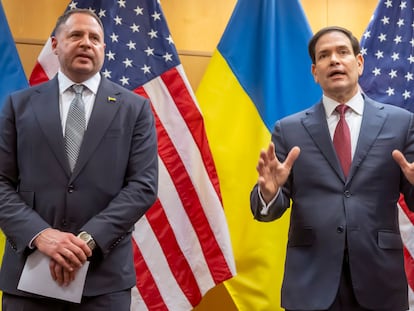
Kyiv and Washington claim to have created an ‘updated and refined peace framework’ based on the Russian-American one that Trump and Zelenskiy must now approve
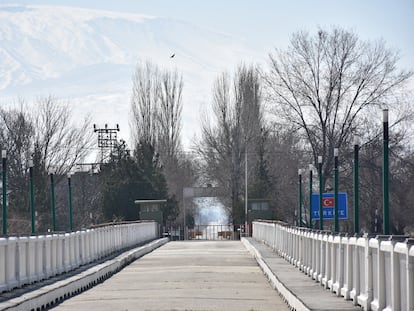
Armenia seeks to distance itself from Russian dominance in a regional context where multiple actors are vying to assert their influence
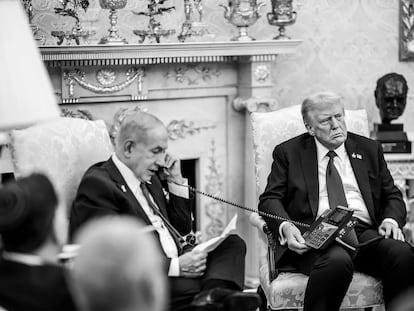
A geopolitical balance of the diplomatic initiative with which the US president has scored another success after the bombing of Iran and the imposition of military and trade demands on Europe
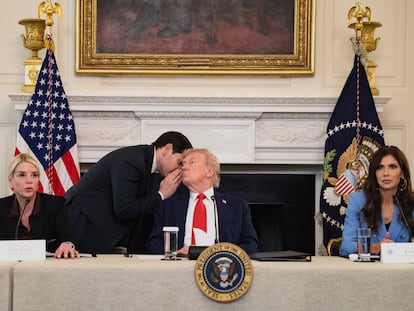
The road for such a fragile initiative is fraught with risks, but the US president’s calculations, the consensus in the region, and Hamas’ weakness and isolation provide cause for hope
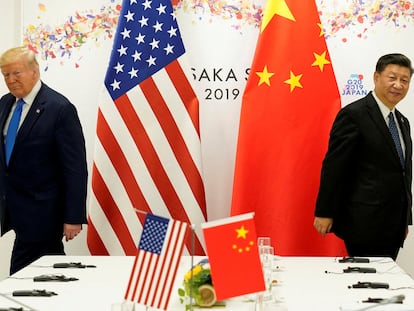
The pulse to reconfigure the world order, sharpened by Trump’s agenda, crudely exposes the supremacy of Washington and Beijing over the rest

A snapshot of the state of the defense sector in Europe, the United States, China, and Russia amid a sharp increase in global military spending

The xenophobic episode in Spain is part of a broader pattern of reaction in the West that draws on a mixture of material and cultural discontent, spurred by the far right
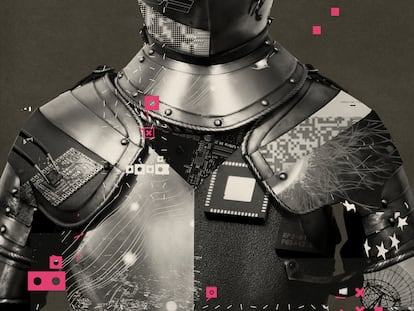
Artificial intelligence, biotechnology, semiconductors, space science and quantum physics are key sectors in today’s geopolitics, where power is tied to technology. European countries yearn to overcome their dependence on the US and China, but fragmentation complicates the path going forward

This analysis explores potential targets of Iranian retaliation, the prospects for regime collapse, and the broader implications for nuclear non-proliferation in the aftermath of the bombing

The advance of a secret Iranian atomic program, the distrust of US allies under Washington’s protection, and the rise of China are fueling a complicated reconfiguration of the atomic landscape